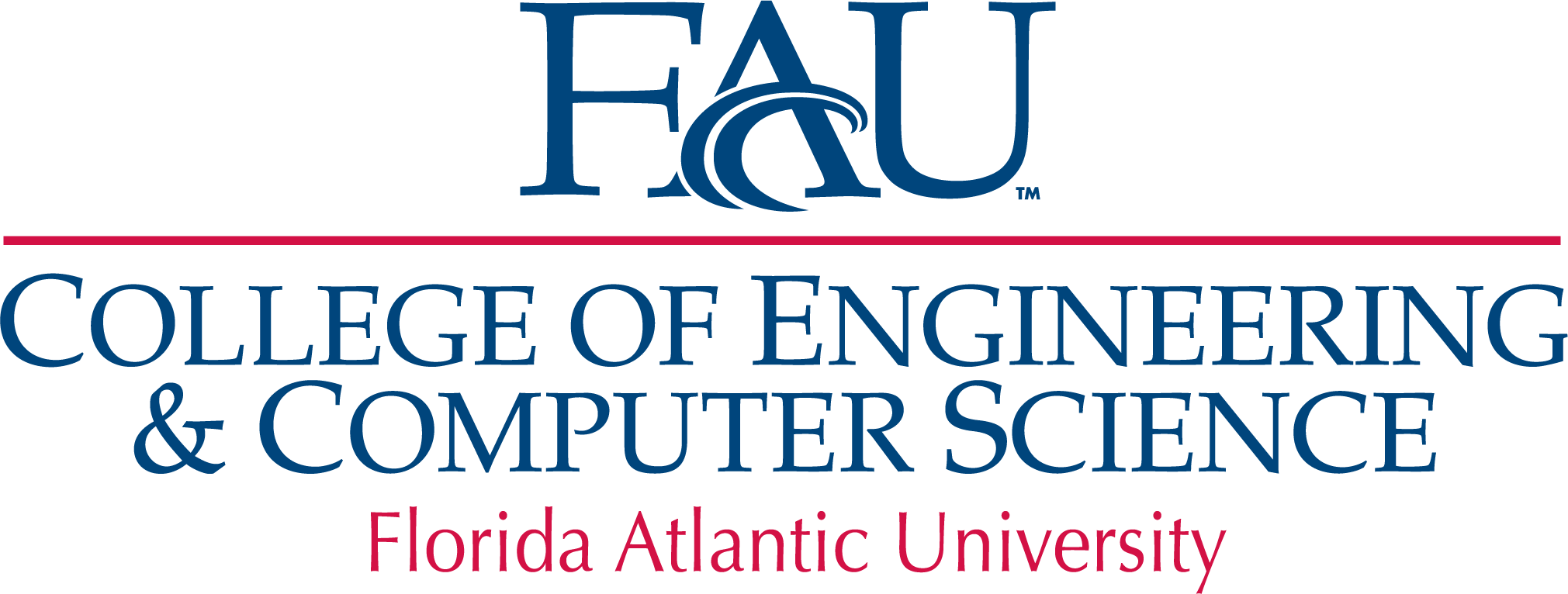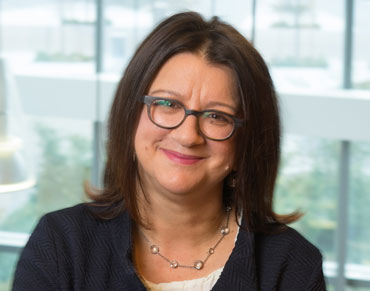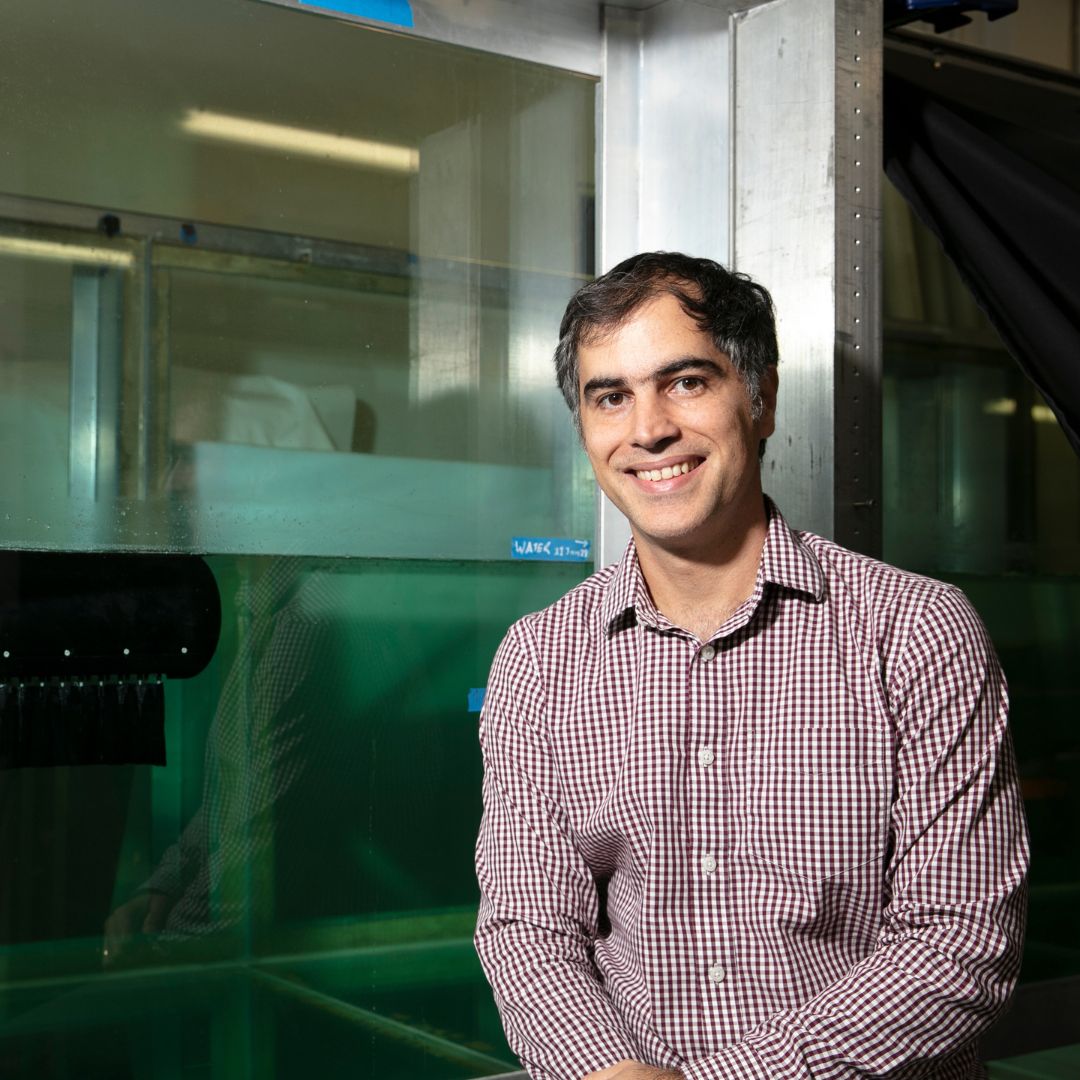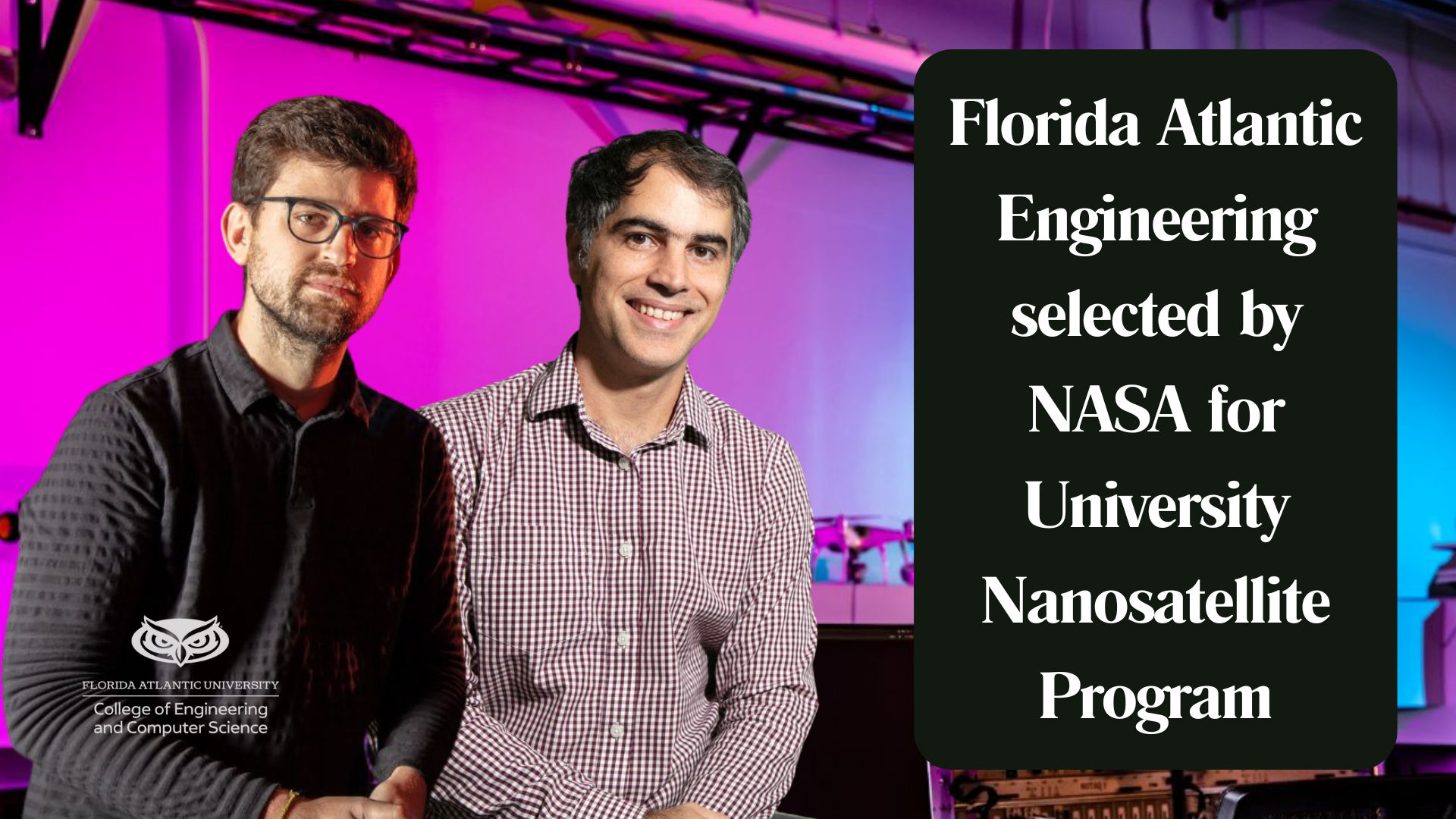 Florida Atlantic University’s College of Engineering and Computer Science is one of eight U.S. university teams chosen to collaborate with NASA – National Aeronautics and Space Administration and the U.S. military in advancing small satellite technology.
Florida Atlantic University’s College of Engineering and Computer Science is one of eight U.S. university teams chosen to collaborate with NASA – National Aeronautics and Space Administration and the U.S. military in advancing small satellite technology.
Established in 1999, University Nanosatellite Program (UNP) was the first federally-funded program dedicated exclusively to university participation in spacecraft development and nearly 5,000 students from 38 U.S. universities have participated since its beginning. Remaining true to its founding principle of education, the program has developed into the premier U.S. small satellite education program. Over the years, the program has had 11 cycles of student programs.
 This training program takes place from May to August and is designed to provide students with specialized systems engineering training for spacecraft development. Led by faculty experts, the program aims to refine satellite project proposals, increasing the likelihood of student-designed technology reaching space. Teams that are selected for the program, including FAU College of Engineering & Computer Science, will gather for a kickoff meeting at NASA’s Kennedy Space Center before spending seven weeks interning at the Air Force’s facilities in Albuquerque. There, students will work with the Space Dynamics Laboratory and receive expert guidance to refine their proposals.
This training program takes place from May to August and is designed to provide students with specialized systems engineering training for spacecraft development. Led by faculty experts, the program aims to refine satellite project proposals, increasing the likelihood of student-designed technology reaching space. Teams that are selected for the program, including FAU College of Engineering & Computer Science, will gather for a kickoff meeting at NASA’s Kennedy Space Center before spending seven weeks interning at the Air Force’s facilities in Albuquerque. There, students will work with the Space Dynamics Laboratory and receive expert guidance to refine their proposals.

Stella Batalama, Ph.D., dean, FAU College of Engineering and Computer Science
“We are incredibly excited and proud to have been selected to work with NASA and the U.S. military to help revolutionize the space domain with tiny yet powerful small satellite technology,” said Stella Batalama, Ph.D., dean, FAU College of Engineering and Computer Science.
“Importantly, this initiative will offer participating students invaluable systems engineering training specific to spacecraft development and is part of NASA’s broader strategy to engage and retain students in STEM fields to build a robust pipeline of talent in the aerospace sector.
The FAU College of Engineering & Computer Science UNP is led by Dr. Oscar Curet, an associate professor in the Department of Ocean and Mechanical Engineering and a member of FAU’s Center of Connected Autonomy and Artificial Intelligence (CA-AI), along with Dr. George Sklivanitis, a Schmidt Research Associate Professor, and a fellow of FAU’s Institute for Sensing and Embedded Network Systems Engineering (I-SENSE), and a senior member of CA-AI.

Dr. Oscar Curet
Curet’s research interests and expertise include fluid dynamics, biomimetics and biological locomotion, hydrodynamics of underwater vehicles and energy harvesting. Sklivanitis’ research interest and expertise include autonomous radios, ocean Internet of Things, networked AI and connected robotics. The team also includes three students: Vitas Diktanas, a Ph.D. student in mechanical engineering with a concentration in aerospace, Sky Rueff (undergraduate in mechanical engineering), and Jonathan Mazurkiewicz. (undergraduate in computer engineering).
The 2024 Mission Concept Program provides funding for all travel, including kickoff, final event, and in-person reviews, allowing faculty and students to formulate teams without straining university resources. NASA uses CSLI as one if its ways to attract and retain students in science, technology, engineering, and mathematics disciplines. This strengthens NASA’s and the nation’s future workforce. The initiative promotes and develops innovative technology partnerships among NASA, U.S. industry, and other sectors for the benefit of all.
Guided by years of spacecraft development history, the UNP structure is divided into four distinct phases. Successful completion of each phase is accomplished through specific entrance and exit criteria. Phases include various reviews and program down-selects intended to help as many teams as possible achieve successful spacecraft mission operations. The UNP Program Office assists university teams throughout the development process in a variety of ways, including facilitating educational opportunities, meetings, reviews, and supplied resources. UNP spacecraft that meet Phase C exit criteria are launched through the Space Experiments Review Board and the Space Test Program (STP).

